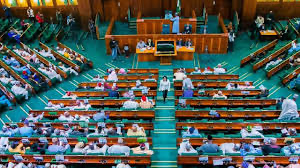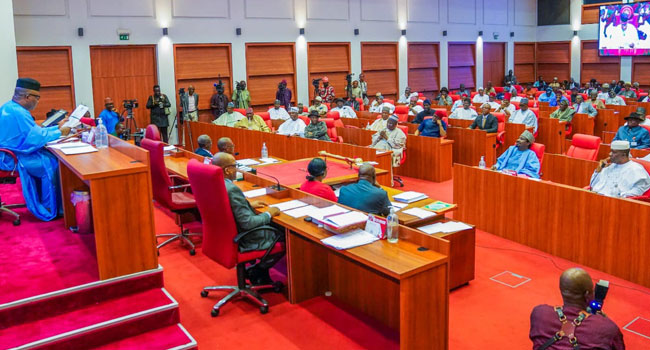The House of Representatives has initiated a resolution to investigate the recent mass retrenchment at the Central Bank of Nigeria (CBN). This decision was reached during an emergency session held on Wednesday, coinciding with the commemoration of 25 years of uninterrupted democracy in Nigeria since May 1999.
Jonathan Gaza, a member of the House representing Nasarawa under the Social Democratic Party (SDP), expressed deep concerns over the manner in which the retrenchments were carried out. He highlighted the absence of fair hearings, proper panels, or clearly defined criteria for the terminations over the past few years.
“Worried that this retrenchment without any fair hearing in the last few years without any fair hearings or panels or criteria spelt out could cause the nation a lot in settlement. Terminating appointments arbitrarily will amount to killing the morale of junior staff not knowing what their fate would be,” Gaza emphasized.
The House’s resolution mandates the Committee on Banking Regulations to investigate the reforms undertaken by the apex bank that led to the downsizing of its staff. This committee will examine whether these reforms were justified and if the retrenchments were carried out in a manner consistent with due process and fairness.
The Olayemi Cardoso-led CBN has been implementing significant operational changes since taking office. In January, the CBN relocated several departments from Abuja to Lagos. This move was aimed at enhancing operational efficiency and reducing the bank’s operating costs. However, this and other reforms have sparked debates about their impact on the bank’s workforce and overall functioning.
During the same session, the House was sharply divided over the contentious issue of employing mercenaries to combat terrorism and kidnapping across Nigeria. Some lawmakers argued that hiring mercenaries could exacerbate the security situation, while others believed that it would provide much-needed support to the nation’s overstretched security agencies.
Ultimately, the amendment regarding the use of mercenaries was stepped down after intense debate.
The division among lawmakers reflects broader concerns about the best strategies to address Nigeria’s persistent security challenges. While some believe that external support could enhance the effectiveness of local security forces, others worry about the long-term implications and potential unintended consequences of such a move.

This session of the House underscores the complex and multifaceted nature of governance and security in Nigeria. The debate over the CBN retrenchments and the potential use of mercenaries highlights the ongoing challenges faced by the country as it navigates economic reforms and security threats.
The resolution to investigate the CBN’s actions demonstrates the House’s commitment to ensuring accountability and transparency in the nation’s financial sector. Meanwhile, the stepped-down amendment on mercenaries reflects the cautious approach lawmakers are taking regarding national security strategies.
As the Committee on Banking Regulations begins its investigation into the CBN’s retrenchment policies, there will be significant interest in the findings and recommendations that emerge.
The outcome of this inquiry could have substantial implications for the bank’s operations and its employees’ future. Similarly, the ongoing debates about security strategies will continue to shape Nigeria’s approach to addressing terrorism and kidnapping.
In conclusion, the House of Representatives’ actions during this emergency session underscore the critical issues facing Nigeria today. From economic reforms and workforce management at the CBN to the broader questions of national security and the potential use of mercenaries, these debates reflect the dynamic and challenging landscape of Nigerian governance.
The House’s commitment to investigating these issues thoroughly is a positive step towards ensuring that decisions are made in the best interests of the nation and its people.




